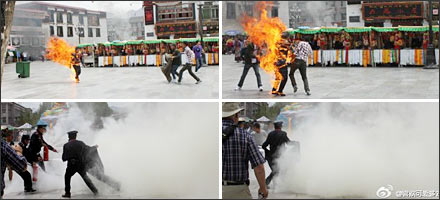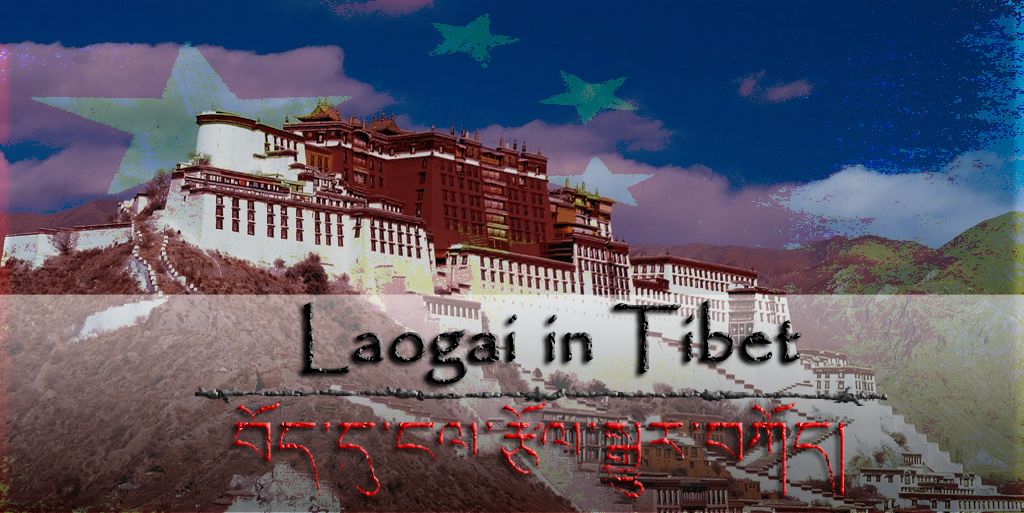Since March 2011, at least 38 Tibetans have resorted to self-immolation, setting themselves on fire in order to protest against the religious and cultural oppression they experience from the Chinese Communist Party (CCP). Twenty-nine have died as a result. Peaceful protests have been met with extreme violence from Chinese military forces. Most of the self-immolators have been young monks and nuns, and most of the protests have taken place outside of Tibet. On May 30, 2012, the first self-immolations in Tibet’s capital, Lhasa, took place. An estimated 600 protestors were placed in detention centers, while protestors from outside of the Tibet Autonomous Region were expelled to their native locations. Government officials say that Tibetans already “enjoy religious freedom” and have “benefited from improved living standards brought on by China’s economic expansion”. However, it remains clear that the Tibetan people lack basic freedoms such as speech, religion, and assembly.
History of Chinese Repression in Tibet
In 1951, China coerced Tibet to sign the Seventeen-Point Agreement, which reaffirmed China’s sovereignty over Tibet, but also ensured that Chinese authorities would not tamper with the current social system or the political powers of the Dalai Lama. After the takeover, China says that Tibet enjoyed democratic reform, as well as social and economic progression. However, in 1959 the Tibetan uprising occurred as a result of China not honoring the Seventeen-Point Agreement. Tibetans were afraid that Chinese forces intended to kidnap the Dalai Lama and take him to Beijing. As a result, 300,000 Tibetans surrounded the Norbulingka Palace in Lhasa. Around 30,000 to 50,000 Chinese troops surrounded the palace and fired at the crowds, with an estimated 430,000 Tibetans being killed as a result. After the uprising, the Dalai Lama was exiled and fled to India, where he was later granted asylum by the Indian government. The Dalai Lama has since renounced his political leadership, but still continues to be the one and only true spiritual leader for five million Tibetans.
Since 1949, over 6,000 Tibetan Buddhist monasteries and shrines have been destroyed. Tibetans also suffer from political oppression and heavy military presence, particularly near monasteries: an estimated 300,000 Chinese soldiers are posted in Tibet. Tibet’s rural nomadic lifestyle is also being threatened, as the CCP has encouraged Han Chinese to seek work in Tibet, which is destroying Tibet’s agricultural economy as well as making Tibetans a minority in their native homeland. Chinese Foreign Ministry spokesman Hong Lei has accused the Dalai Lama of instigating the protests and self-immolations, and for encouraging ‘splittism’- the pursuit of Tibetan independence from the P.R.C. Lei also says that these acts of self-immolation will not attain “Tibetan independence and separatism.” The Dalai Lama has repeatedly said that he seeks autonomy for Tibet, not independence. It seems, however, that in recent years under increasingly brutal oppression, more and more Tibetans are rejecting the Dalai Lama’s peaceful, nonviolent, “middle way”. Those who resort to self-immolation do so because they feel that it is the only way to express their beliefs and to gain freedom from their oppressive government.
Making Voices Heard
Please join the Laogai Research Foundation as we host our “Laogai in Tibet” Conference on June 8th, 11th, and 12th, 2012. Thanks to the generous support and collaboration of the International Campaign for Tibet, the Lantos Foundation, and the Victims of Communism Memorial Foundation, several Tibetan exile Laogai survivors will come to Washington, DC to share their testimonies. The speakers, including several of whom have traveled from Dharmsala, India, were imprisoned by the Chinese government for protesting against the injustices of the CCP policy in Tibet. It is important for the world to know that Tibetans do not live free lives, but are constantly facing religious and cultural oppression by the CCP. While Tibetans are peacefully protesting and sacrificing their own lives, Chinese military forces continually resort to violence in order to suppress these protests. The world must let the Chinese know that this is unacceptable. It is important for Tibetans to gain the basic human rights they so desperately deserve.
In the words of the late Jamphel Yeshi, a man who immolated himself in order to gain freedom from the oppressive Chinese government: “Freedom is the basis of happiness for all living beings. Without freedom, six million Tibetans are like candlelight in the wind, without direction.”

